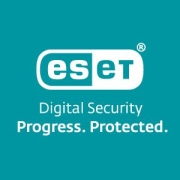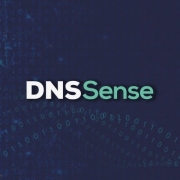DNS Security safeguards digital environments by protecting domain name infrastructures from various threats. It involves technologies and protocols that ensure the security and privacy of data transactions through domain systems.
In an era where cybercrimes are on the rise, DNS Security plays a crucial role in protecting networks from phishing, malware attacks, and unauthorized data access. Misconfigurations in DNS can be exploited by attackers, making DNS Security indispensable for maintaining trust and reliability in online domains. Security measures employed in DNS often include DNSSEC, which adds an additional layer of verification to DNS queries, ensuring that the responses are accurate and non-compromised.
What are the critical features of DNS Security?DNS Security is particularly significant in industries like finance and healthcare where data protection and compliance are critical. These sectors rely on complex DNS systems to manage data exchanges securely. Implementing robust DNS Security measures helps protect against breaches, which can have severe regulatory and reputational consequences.
Implementing DNS Security is crucial for any organization looking to maintain secure and trustworthy digital communication channels. It ensures reliable user access to services while minimizing risks associated with cyber threats.
| Product | Market Share (%) |
|---|---|
| Cisco Umbrella | 23.3% |
| Infoblox Advanced DNS Protection | 16.1% |
| Palo Alto Networks DNS Security | 9.4% |
| Other | 51.199999999999996% |














































Domain name system security (DNSSEC) adds a level of protection to the DNS by using two digital keys to authenticate any address retrieved by the DNS. One of the keys is held privately by the owner of the website and revealed to no one. The other key is present in the code of the web page where anyone can access it publicly. These keys attempt to verify the authenticity of a signature on the web page data that the DNS pulls up. A search for a web page prompts the DNS to retrieve and attempt to match the public key to a digital signature that stamps the data. If the key confirms that the signature is valid, then the information is returned to the person who issued the query. However, if the key is unable to verify the data as valid, then the data is rejected. The system will assume that it is under attack and will issue an error message.
The reason that domain name system security is necessary is that by itself the DNS is not secure. It is possible for hackers to manipulate the DNS and send users to any web page that they desire. An unsuspecting person can be redirected to a site which can maliciously target them. Hackers have the ability to forge DNS data and make it so that the IP address appears to be anything that they want. The computer that launches the query ordinarily would not have any way to determine the true source of the data. The development of DNSSEC created a way of securing the DNS against data forgery.
A domain name system (DNS) is an object in itself. This is a program that takes domain names and transforms it into a format that computers are able to read. It exists as its own independent entity and requires nothing else for it to be meaningful. Domain name system security (DNSSEC) is a protocol that exists as an addition to DNS. DNSSEC provides a layer of security to the DNS which is otherwise pretty insecure. For this reason, DNSSEC only has meaning when seen as an add-on to the DNS.
There are a number of benefits that come with the use of domain name system security (DNSSEC). It can:
DNS Security solutions protect against Distributed Denial-of-Service (DDoS) attacks by leveraging traffic filtering and rate limiting techniques. By analyzing incoming queries and differentiating legitimate requests from malicious ones, these solutions can redirect or block harmful traffic. This ensures that your DNS infrastructure remains operational, maintaining service availability even during an attack.
Why is DNSSEC important for ensuring data integrity?DNS Security Extensions (DNSSEC) play a crucial role in ensuring data integrity by digitally signing data to ensure its authenticity. DNSSEC helps protect users from cache poisoning attacks by validating that the DNS responses are from genuine sources and have not been tampered with in transit. Implementing DNSSEC ensures that the information users receive is accurate and reliable, thereby enhancing trust in your domain operations.
Can DNS Security help in reducing phishing attacks?DNS Security is instrumental in reducing phishing attacks by identifying and blocking access to phishing sites. Advanced DNS filtering systems continuously update lists of malicious domains used in phishing schemes. By blocking these domains at the DNS level, users are prevented from accessing counterfeit sites that attempt to steal personal information, thus safeguarding sensitive data and maintaining user trust.
What role does DNS Security play in maintaining compliance?DNS Security helps maintain compliance by ensuring that your network meets industry standards and regulations regarding data protection and cybersecurity. By implementing robust DNS Security measures, you can demonstrate that your organization is proactively defending against threats, aligning with compliance requirements such as GDPR or HIPAA. This proactive approach can mitigate risks of hefty fines and reputational damage associated with non-compliance.
How can threat intelligence enhance DNS Security solutions?Threat intelligence enriches DNS Security solutions by providing real-time insights into emerging threats and vulnerabilities. By integrating threat intelligence, you can enhance your DNS Security posture, enabling your systems to anticipate and swiftly respond to potential breaches. This proactive approach allows for more efficient mitigation of threats, reducing response time and minimizing the impact of malicious activities on your network.